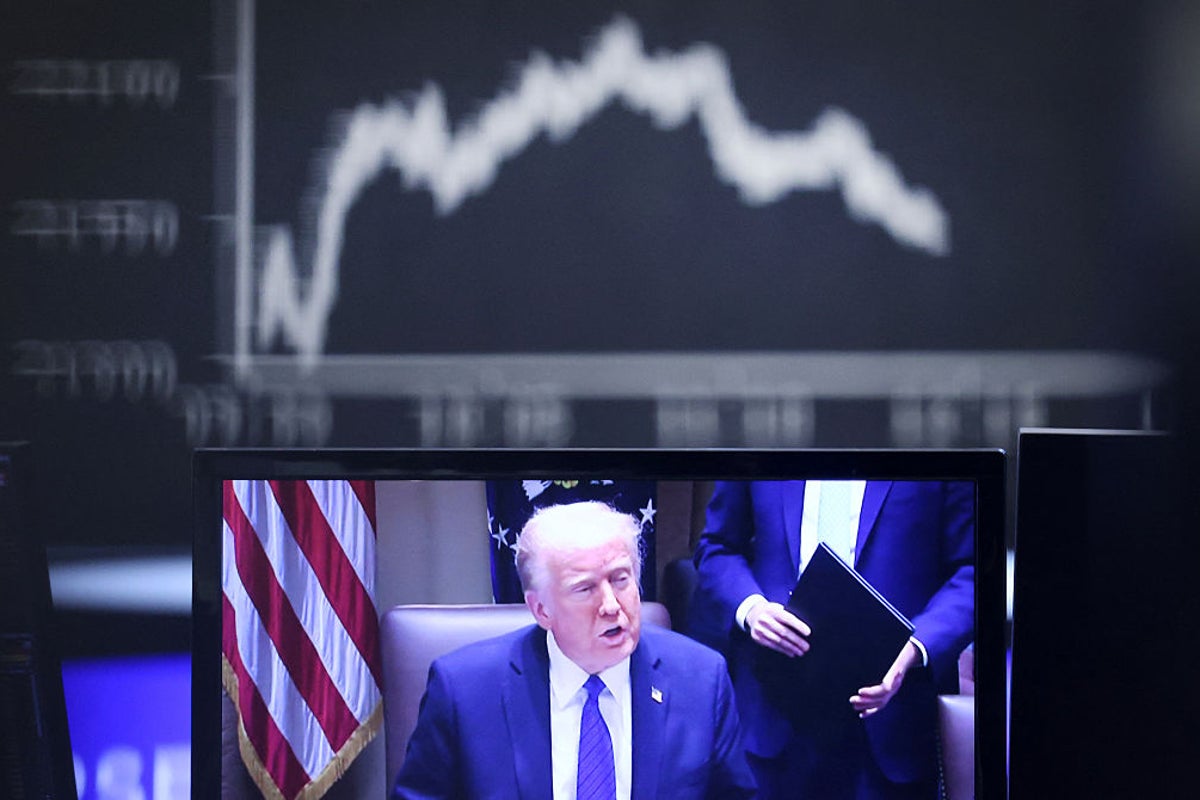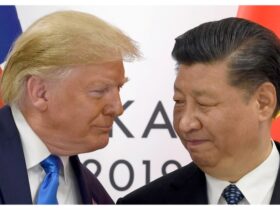Your support helps us to tell the story
From reproductive rights to climate change to Big Tech, The Independent is on the ground when the story is developing. Whether it’s investigating the financials of Elon Musk’s pro-Trump PAC or producing our latest documentary, ‘The A Word’, which shines a light on the American women fighting for reproductive rights, we know how important it is to parse out the facts from the messaging.
At such a critical moment in US history, we need reporters on the ground. Your donation allows us to keep sending journalists to speak to both sides of the story.
The Independent is trusted by Americans across the entire political spectrum. And unlike many other quality news outlets, we choose not to lock Americans out of our reporting and analysis with paywalls. We believe quality journalism should be available to everyone, paid for by those who can afford it.
Your support makes all the difference.
Share prices tumbled around the world on Friday – with Britain’s FTSE100 suffering its worst drop since the start of the Covid-19 pandemic – as the global trade war intensified with China’s retaliatory match of a 34% tariff on imports of all US products.
Trillions of dollars have been wiped from markets since Donald Trump announced a range of import taxes on rivals. British exports to the US face a blanket 10% levy.
Sir Keir Starmer is due to hold talks with world leaders over the weekend, as nations reel from the economic hit and decide whether to reciprocate with tariffs on Washington. The prime minister was yesterday urged by predecessor Sir Tony Blair not to retaliate, saying such a move wouldn’t be in the UK’s “best interests.”
Economists warn escalation could trigger a spike in inflation and weaken growth, even triggering recession.
The collapse in share values creates a big dent in many British pension funds, and there are fears China will respond to the US action by flooding other countries with cheap exports, further harming British firms.
Wall Street saw a second day of bruising losses on Friday, while London’s top stock market fell 4.95% to a five-year low – its biggest single-day decline since March 2020.
Downing Street rejected Trump’s claim the British government is happy about the 10% fee, which is half the 20% being imposed on European Union members, and much lower than many other nations.
Aboard Air Force One, Trump told reporters he had “very good dialogue” with Sir Keir, adding: “I think he was very happy about how we treated them with tariffs.”
But a spokesman for No 10 was clear – “we are disappointed” – and added: “We’ll be engaging with international leaders over the weekend… it is a changing, shifting global economic landscape.”
Analysts for AJ Bell estimate that about £3.8 trillion has been wiped off the value of the global stock market since Trump’s announcement, billed as Liberation Day for the US economy.
“It caps off a horrible week for financial markets and dragged share prices even lower,” AJ Bell investment analyst Dan Coatsworth said.
“It’s also bad for the world in general as we now have a repeat of the heightened geopolitical tensions between the US and China which dominated Trump’s first term,” adding that the president’s “tactics have caused shockwaves in every corner of the world.”
As well as share prices, the value of the US dollar and even gold fell on Friday.
US Federal Reserve chair Jerome Powell said the tariffs and their likely economic and inflationary impacts are “significantly larger than expected” and are “highly likely” to lead to “at least a temporary rise in inflation” in the US.
In the standoff between the US and China, Beijing imposed reciprocal tariffs and announced controls on exports of medium and heavy rare-earths, including samarium, gadolinium, terbium, dysprosium, lutetium, scandium and yttrium, to the US.
In Japan, prime minister Shigeru Ishiba said Trump’s tariffs had created a “ national crisis” as a plunge in banking shares set Tokyo’s stock market on course for its worst week in years.
Investment bank JP Morgan said it now sees a 60% chance of the global economy entering recession by year end, up from 40% previously.
EU trade commissioner Maros Sefcovic said he would speak to US counterparts before responding.
“The EU will respond in a calm, carefully phased, and above all, unified way, as we calibrate our response,” he said on social media. “We will not shoot from the hip.”
















Leave a Reply